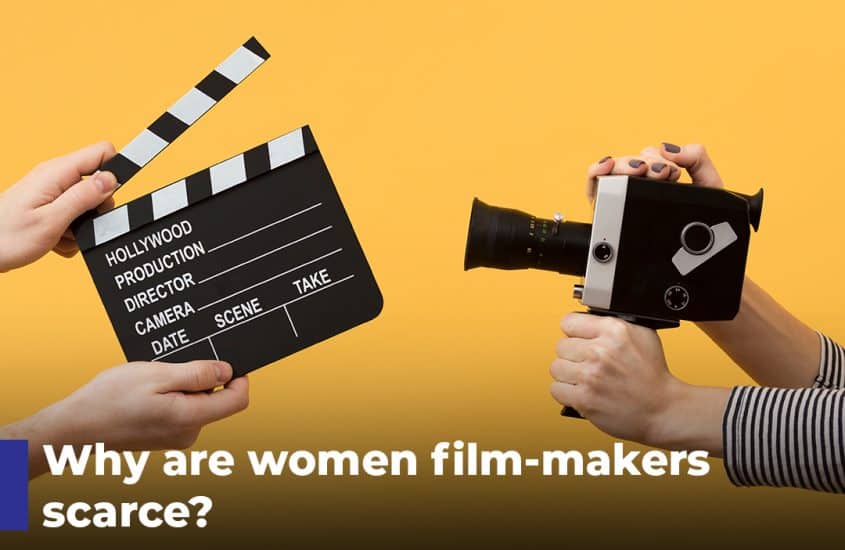Why are women film-makers scarce?

Author: Sumona Chetia
Towards the end of 2019, Bang Geul Yi became the first female main producing director for a KBS (A South Korean television network) variety show. This news shouldn’t have raised eyebrows, but it did. The reason being the South Korean entertainment industry displays gender disparity on both sides of the camera. So a female leading a show comprising 6 male celebrities was bound to be a shocker.
It’s not just South Korea. In fact, all film and entertainment industries around the globe have accepted this as the norm. We have viewed great works of women directors getting side-lined at the Oscars n number of times. Despite a historic number of movies directed by women in the year 2019, not one female director got nominated for the Oscars 2020. What was supposed to be a banner year for women in arts turned out to be #OscarsSoMale.
Let’s look at a few possible reasons of sexism in the world of cinema-
1. Lack of women (director) role model:
Directing a movie is a man’s job. That is the perception. And with that mind-set, women can’t imagine standing behind the camera.
2. Are overtly emotional:
Being emotional is an essential element in making art come to life on screens. But the notion is since men have been pioneers in carrying out this herculean task of making movies, the emotional aspect can’t be a good asset.
3. Where are the women?
An article read that many studios question, “Where are the women?” This excuse has been going around since forever.
4. Fewer opportunities to direct a second film:
A research-based report shows that women directed just 4% of the top 1200 films from 2007 to 2018. Of those female directors, only 17.4% had gotten to direct another movie beyond their debut feature (13% directed a second, 2.2% a third, and 2.2% a fourth).
Source: https://time.com/5763937/oscars-2020-female-directors-shut-out/
5. Women genres movie:
A prevailing idea that men make universal themed movies, whereas women’s stories are just for women rules the film-making domain. And this belief leads to distrusting a woman director’s vision.
There are many other societal and structural reasons for the under-representation of women in the film making industry, and those reasons will resonate with every working woman. Lack of opportunities, fear of prejudices, and the denial of acknowledgment further leads to the invisibility of the few female directors that the world has seen. The common key here is to break the glass ceilings and dominate your way through the role you deserve to achieve in a man dominated industry. And more and more female role models are the need of every hour.
A silver lining which failed to get recognized at the Oscars platform is still an inspiration of revolution for many aspiring and present female directors around the globe. With regional names like Sudha Kongara, Manju Borah, Rima Das, Anjali Menon, Ashwini Iyer Tiwari, etc… making their mark and adding numbers to the previously single digit is in itself a positive sign. Bollywood actress Anushka Sharma producing a hit series and a movie back to back on an OTT platform is indeed going to set an example of the power of diversity. Irrespective of her gender, the audience enjoyed the two sources of entertainment and, that’s what weighs more.
A shift can be seen post the Oscars 2020 backlash and new D&I norms are coming into force by the end of this year. The picture might not be rosy all of a sudden, but there will come a time when hearing about a film directed and produced by a female will be ordinary and mainstream.
“Sometimes women can’t ask for control, so they have to take it. Ok? I want you to remember that”- Alex Levy played by Jennifer Aniston on the Morning Show







